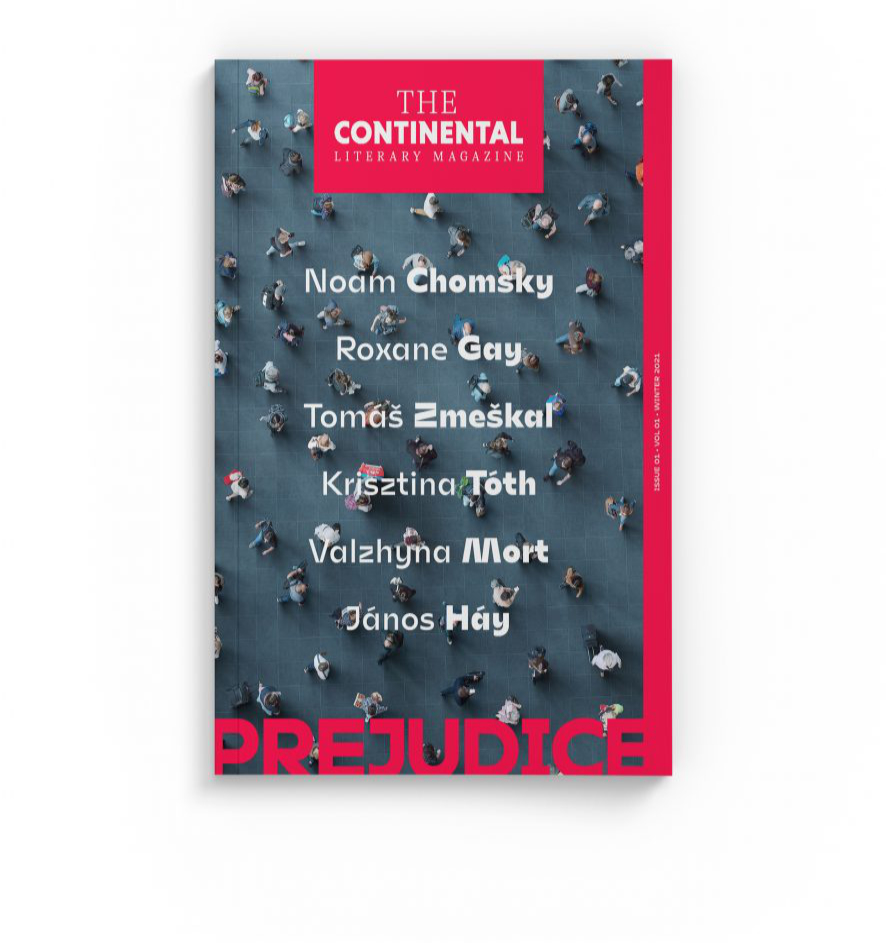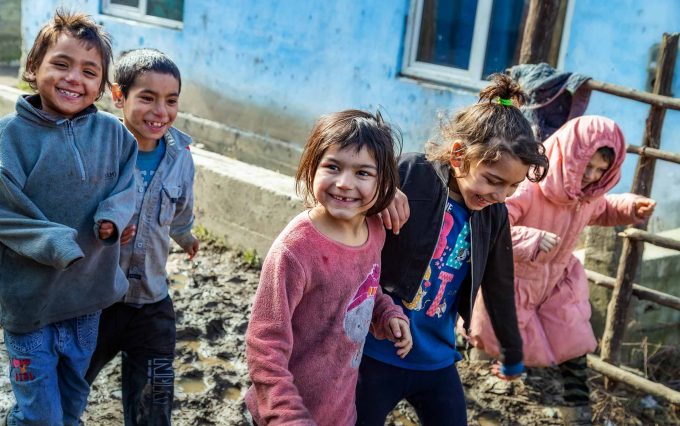
10th November 2021
Fiction
7 minutes read
It’ll Be Great!
translated by Owen Good

10th November 2021
7 minutes read
“It’ll be great!” the teacher said, wanting to forget that morning, “it’ll be great.” She had staggered into the kitchen, not quite herself because she hadn’t yet had her first coffee. As usual, she’d been holding her phone in one hand, filling the kettle with the other, and for some reason the phone had slipped out of her grip. I’m so clumsy today! she thought, bending to pick it up. It had hit the edge of the sink before clattering to the ground. The screen protector was cracked. No, it wasn’t a big deal, but still she was one step closer to tragedy. She really didn’t have the money to change the screen; she could hardly bear to be reminded that her son needed private lessons in English and math. I’m having a bad day, she thought. Sometimes you make yourself have bad days. Maybe I shouldn’t have argued with Maxi about the private lessons, going on about how if I’m paying for them, he has to study. That wasn’t fair. It’s like I don’t trust him. Like I don’t trust my own son! I don’t understand myself sometimes.
She was teaching social design. This wasn’t her first class, but she was a little nervous: she had come up with a new project, and the details weren’t clear to her yet. We go, she thought, we go and we feel out the situation, and some opportunity will present itself. She smiled at her students and repeated silently: it’ll be great!
Emmi watched the teacher’s face. She liked watching faces, all those movements; it didn’t bother her that the faces gave her weird looks in return, as if to ask, what are you looking at? She couldn’t stop looking: the way a face moved was so interesting. You could make a short film about it, she said to herself, about the movements of the teacher’s face! One expression freezes, suddenly dissolves, and then the next comes. As if there were no internal continuity: something stops and something entirely new appears. Emmi was thinking that she didn’t believe the teacher’s face was sincere. She was interested in how sincerity appeared on faces, and now she focused on whether she could capture this lack of sincerity in a drawing: what was the small detail that gave it away?
Emmi was sitting beside Richie; the other seat at the table was empty. Richie was asking the teacher about the project, so Emmi diverted her attention away from the teacher’s face and started watching Richie’s mouth.
“What’s the guarantee we’ll be welcome?” he asked.
“We have a long relationship with the charity,” the teacher said. “They guarantee–or I guarantee– they’ll pick appropriate subjects for us.”
“It’s risky though!” Richie said. “I want to be sure they’re willing to put us up. What happens if they don’t want any of it?”
“Everything has some risk,” Emmi said suddenly. She liked Richie but felt he was putting too much emphasis on his own personal comfort. If he wanted to stay in his comfort zone, then he shouldn’t do social design. Richie shrugged but stopped talking.
The teacher wrote the basic principles of social design on the board: problem solving, cooperation, participative design.
“Find the problems, recast them so that through the means of design you can find solutions, and work out the solution together. Clear? We’ll leave this weekend. I’ll send you the details in an email. See you Friday at 9 AM.”
After class, in the queue for the coffee machine, Tina, a girl Emmi did not know well, turned to her and said, unexpectedly, “My house is full of racists too.” Emmi figured she was still talking about the class. “At home,” Tina continued, “it’s Roma slurs and nothing else! Last time they started, I had to get up and leave the table.”
“I’m sure I’d be affected, too,” Emmi said cautiously, “if my family thought like that.”
“Did you see Richie? He’s clearly a racist, you can smell it a mile away. He can’t even begin to fathom working with Roma!” Tina prodded her money into the slot, pressed the button, and waited for the machine to dispense a drink.
Emmi watched Tina’s back and wondered how to defend Richie. “He’s not necessarily racist,” she said eventually. “We’re talking about a whole group of students coming down from the city and needing to be hosted. He’s right to ask whether the people want it or not, or whether the charity is just forcing something on the families. I’m a bit scared, too, but you have to deal with the fear. We visit a family, we have to sleep there for two nights, they have to make room for us…”
“I’m not scared,”
Tina said, turning to face her, coffee in hand. “That’s standard prejudiced thinking that you need to be scared. It’s the same as my family constantly warning me to hold on to my bag if a Roma stands beside me on the tram. Exactly the same. I don’t get you. I liked that you spoke up to Richie, that’s the only reason I started telling you how I know what it’s like to fight racism. You have to be open-minded! Then problems solve themselves.”
Emmi stepped aside with her coffee and waved to a friend who had joined the back of the queue.
“Yes, open-mindedness is important,” she said to Tina after a long pause. “I accept that. There’s no design without open-mindedness, never mind social design. But whether that’s enough, I don’t know. I’m scared that maybe I’m not even going to understand their problems.”
On Friday morning, the bus set off north to the small village where a branch of the charity operated. The teacher had warned everyone to dress casually and to pack two changes of clothes, a telephone, and a camera–but not their most expensive one. No need for gifts; the charity gave the families packages. Emmi sat beside the teacher. She felt numb. She let the bus shake her and listened with one ear to the others talking. Richie was speaking to someone. She couldn’t properly hear what he was saying, but she recognized his voice. So, he came after all, she thought contentedly.
The village was in the hills. Houses popped up one by one as they drove through the meandering valley. The bus passed the Catholic church whose paint was crumbling on the steeple and stopped at the side of the road in front of a yellow façade. A middle-aged woman stepped out of the freshly painted building and waved to them, perhaps to get their attention. Emmi climbed down the steep steps of the bus, watching the woman’s face. Something in its broad smile bothered her even though the circumstances were right: arrival, welcoming, joy. The teacher spread her arms to gather the students. “Etel is going to be our coordinator,” she said. “And now we’re going to meet the families in the community hall.”
Emmi stepped into the cool building. She and the others filed in through the narrow doorway to the hall where people were sitting, mostly women and a few screeching children. The women watched the students in silence. “Here we are!” said the coordinator. “I’ll read who is going to which family. Go and find each other, and then we’ll discuss the details.” Emmi was charmed by one of the little boys, who stood up in his mother’s lap, pointed and laughed every time the coordinator called out a name. His mother didn’t laugh or scold him; she just held his legs so he wouldn’t fall. He’s like a conductor, thought Emmi. Everyone knows everyone here.







